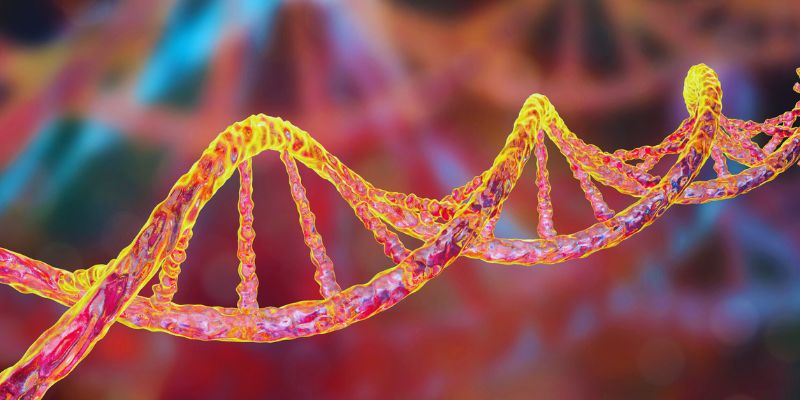Advertisement
Secondary Myoclonus is the involuntary muscular jerks or twitching brought on by a medical ailment. Unlike initial myoclonus, which could strike without any known cause, Secondary Myoclonus is associated with neurological diseases, metabolic problems, or other medical ailments. The muscular spasms observed in secondary Myoclonus might vary in frequency and strength, affecting different body parts.
Given that secondary Myoclonus spans a broad spectrum of disorders, the circumstances causing it can be difficult to identify. Examining several disorders that can cause secondary Myoclonus, this article provides information on symptoms, diagnosis, and course of treatment. By the conclusion, you will know more about this complicated disorder and how it ties to underlying medical problems.
Neurological disorders affecting the spinal cord and brain often cause secondary Myoclonus. One frequent cause is epilepsy, in which seizures induce muscle jerks or spasms. The jerks linked with epilepsy can either be part of the seizure or postictal phenomena, in which case the muscles twitch following the termination of a seizure. Parkinson's disease is another neurological condition capable of producing secondary Myoclonus. In this disorder, motor dysfunctions like Myoclonus result from the loss of dopamine-producing neurons.
Myoclonus, which often includes jerky motions of the limbs or face, may strike during rest or exercise in Parkinson's disease. Additional neurological conditions, including Alzheimer's disease and multiple sclerosis (MS), can induce Myoclonus. Because of nerve damage, MS, an inflammatory illness that compromises the central nervous system, can cause Myoclonus. Likewise, with Alzheimer's disease, where the brain's functioning is compromised, muscular jerks could develop as the condition advances.
Another major contributing factor to secondary Myoclonus is metabolic problems and electrolyte abnormalities. When glucose levels fall too low, disorders, including hypoglycemia (low blood sugar), can cause Myoclonus. Glucose is the primary energy source for the brain. Hence, inadequate quantities can cause the brain to malfunction, resulting in uncontrollably moving muscles. An electrolyte imbalance, including low calcium or magnesium levels, can also affect Myoclonus.
Muscle contraction and nervous system operation depend critically on these electrolytes. Too low levels of these minerals might cause the nerves to become hyperactive, producing jerky muscular movements. Furthermore, liver and renal diseases disturb the body's metabolic processes, which cause toxins to build up in the blood. Myoclonus can develop from changes in the neurological system brought about here. Waste materials in the body cause jerking motions in those with uremic Myoclonus, a disorder related to renal failure.
Additionally, several medications or chemicals that cause secondary Myoclonus are toxic. Sometimes, adverse effects of medications such as antidepressants, antipsychotics, or stimulants produce muscular jerks. Additionally known to cause Myoclonus are some antibiotics, including penicillin and chemotherapy medications. Myoclonus can follow from substance usage, including drinks or benzodiazepine withdrawal.
Abrupt stop of drinks or benzodiazepines might cause neurological problems, including jerks and muscle spasms. Toxic Myoclonus can result from heavy metal exposure, including lead or mercury. Over time, these metals can build up in the body and compromise nervous system operation, leading to involuntary motions.
Additionally, some autoimmune disorders cause secondary myoclonus. In these disorders, the immune system mistakenly targets healthy cells, including those in the nervous system, causing Myoclonus as a side effect.
Systemic lupus erythematosus (SLE) is an autoimmune disease in which the body's immune system targets brain tissue, among other areas. Myoclonus is a neurological symptom of SLE, often in concert with seizures or other motor dysfunctions. The rare autoimmune condition Hashimoto's encephalopathy can also produce secondary Myoclonus. It damages the brain and can cause confusion, seizures, and muscular jerks.

Additionally, genetic factors are very important in the development of secondary Myoclonus. Inherited diseases, including progressive myoclonus epilepsy (PME), are caused by genetic abnormalities impairing nervous system operation. Those with PME have progressive neurological degeneration that causes Myoclonus, seizures, and other movement abnormalities.
Tourette syndrome is another hereditary disorder connected to Myoclonus, whereby people may have muscular jerks and vocal and motor tics. Although Tourette syndrome mostly consists of repeated motions or sounds, certain people may have Myoclonus, sudden body jerks. In many inherited disorders, the genetic mutation implicated can affect the beginning and degree of Myoclonus. Treatment emphasizes controlling symptoms and slowing down the course of illness.

Brain traumas and strokes can cause secondary myoclonus by upsetting the usual brain-muscle communication. Myoclonus can arise following a severe brain injury from damage to the motor centers. This injury could cause the muscles to receive aberrant impulses, which would cause jerky, forced motions.
Myoclonus can also be brought on by strokes, which arise from disrupted blood supply to the brain. Post-stroke Myoclonus can result from a stroke compromising the motor cortex or another portion of the brain regulating movement. Depending on the part of the brain damaged, these jerks could show on one side of the body or impact both sides. The degree of brain tissue damage determines Myoclonus's severity following a stroke or brain injury. While Myoclonus sometimes resolves independently, treatment may be required to control the disorder in others.
Among the several underlying diseases causing secondary Myoclonus include brain traumas, metabolic abnormalities, and neurological disorders. Effective treatment depends on the root cause being found since Myoclonus is sometimes a sign of a more severe medical condition. Early diagnosis helps to control problems and avoid complications. Treatment choices could include medicines, lifestyle modifications, and primary condition treatment. See a doctor to find the source of your involuntary muscular jerks. Knowing the factors triggering secondary Myoclonus can enable patients and caregivers to control the symptoms and raise the general quality of life.

By Celia Kreitner/Feb 19, 2025

By Sid Leonard/Feb 28, 2025

By Mason Garvey/Jan 03, 2025

By Alison Perry/Apr 01, 2025

By Tessa Rodriguez/Dec 15, 2024

By Georgia Vincent/Feb 28, 2025

By Madison Evans/Nov 05, 2024

By Darnell Malan/Dec 05, 2024

By Isabella Moss/Dec 15, 2024

By Elva Flynn/Oct 10, 2024

By Madison Evans/Oct 24, 2024

By Korin Kashtan/Dec 15, 2024